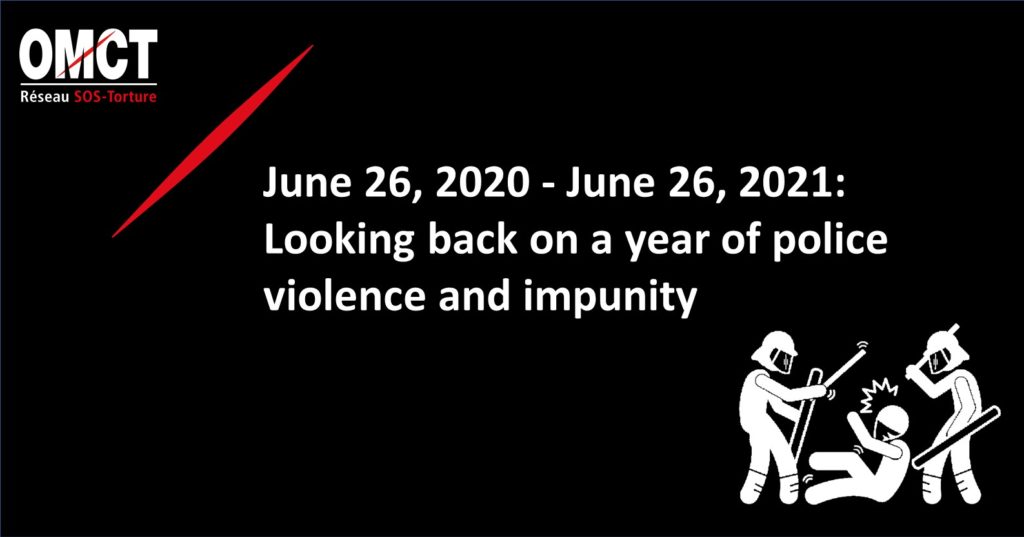June 26, 2020 – June 26, 2021: Looking back on a year of police violence and impunity

Tunis, 25 June 2021
On the 26th of June, Tunisia will commemorate the International Day in support of victims of torture. Like every year, the day is an opportunity to take stock of any undertaken reform to curb institutional violence and to guarantee access to justice for victims of torture and ill-treatment.
This year, the assessment is painful, marked by an explosion of police violence and a partial resignation of the judiciary. Suspicious deaths, violent repression of demonstrations, assaults on activists and alleged demonstrators, police harassment of persons registered under administrative control measures, arbitrary detention of migrants, violence against members of the LGBTIQ++ community, torture and ill-treatment against citizens inside and outside of police stations, following an identity check or a private dispute. Institutional violence has taken on many faces and caused many victims.
Executive forces, who in recent years have been careful in preserving an image of respectability, resort increasingly to violence in an increasingly uninhibited manner encouraged by aggressive police unions who insult and threaten their critics on social networks while calling on the police not to cooperate with the judiciary in affairs against them.
At the same time, the judiciary has been seriously weakened during the sanitary crisis. Prosecutors have frequently ordered the accused to be placed in preventive detention on the basis of reports drawn up by judicial police, without even seeing the accused to ensure that their rights in police custody had been respected. Often, this was not the case leaving detainees deprived of the possibility of denouncing the violations that they suffered. The sanitary crisis simply justified this obliteration of prosecutors, which constitutes a flagrant violation of international law guaranteeing the right of any arrested person to be brought swiftly before a prosecutor.
The sanitary crisis has also fueled impunity. Investigations for torture and ill-treatment, usually characterized by their extreme slowness, have largely been suspended due to the slowdown of judicial activity. Only the investigations concerning the accused in detention were continued. However, in cases of police violence, rare are the numbers of involved officers that are detained during the investigation. A citizen, who violates the curfew is more likely to end up in prison than a perpetrator. The past year only emphasized the sentiment of many Tunisians of a two-tier justice.
In this most alarming context, we need to remain mobilized and to promote the fundamental rights of all citizens.
